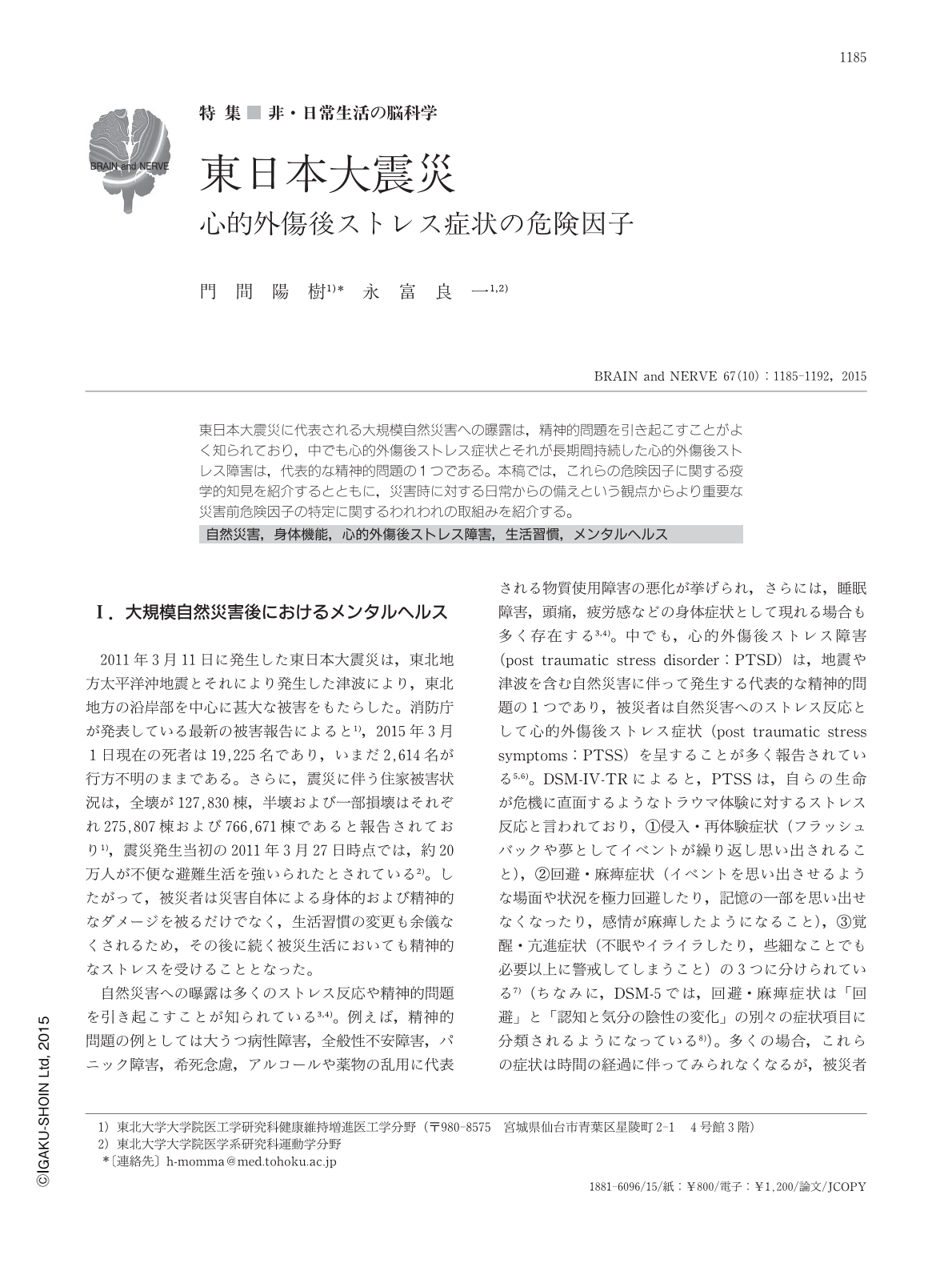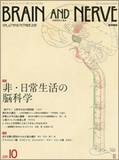Japanese
English
- 有料閲覧
- Abstract 文献概要
- 1ページ目 Look Inside
- 参考文献 Reference
東日本大震災に代表される大規模自然災害への曝露は,精神的問題を引き起こすことがよく知られており,中でも心的外傷後ストレス症状とそれが長期間持続した心的外傷後ストレス障害は,代表的な精神的問題の1つである。本稿では,これらの危険因子に関する疫学的知見を紹介するとともに,災害時に対する日常からの備えという観点からより重要な災害前危険因子の特定に関するわれわれの取組みを紹介する。
Abstract
The Great East Japan Earthquake and following Tsunami struck the northeastern coast of Japan on March 11, 2011 and left approximately 21,389 dead or missing. Further, approximately 200,000 survivors were forced to live in uncomfortable environments after they had been evacuated. The survivors were not only damaged both physically and mentally, but they were also forced to change their lifestyle habits during the refuge life. It is well known that exposure to natural disasters, such as the Great East Japan Earthquake, has been associated with a variety of mental health consequences. Post traumatic stress disorder (PTSD) and its symptoms (PTSS) are the most commonly occurring and studied post-disaster psychopathologies. Although the majority of victims cope well with the situation and conditions associated with a disaster, some of them experience PTSS, and the minority of victims develop PTSD. In this article, we provide epidemiological findings to address the risk factors, for PTSS and PTSD. We also describe the challenges in identifying the pre-disaster risk factors for PTSS and PTSD in order to determine strategies that could facilitate psycological preparation for unexpected large-scale disasters.

Copyright © 2015, Igaku-Shoin Ltd. All rights reserved.


